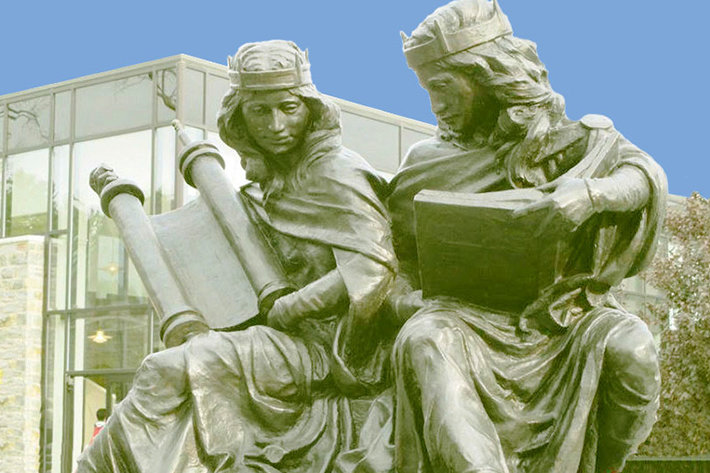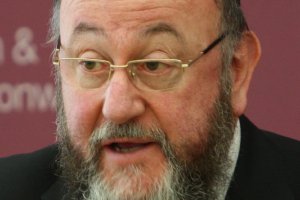
Yeshiva University, long an academic center for those who would join the Orthodox Jewish rabbinate, unveiled its Hebraic Studies Program for Christian Students this summer. The program is run in partnership with the Philos Project, a Christian nonprofit that promotes “positive Christian engagement in the Near East by creating leaders, building community, and taking action in the spirit of the Hebraic Tradition. The Yeshiva program began its first semester with eight students on an online course in introductory Hebrew.
This fall the curriculum moves from online into the classroom, covering ancient and modern Jewish history, post-biblical Jewish literature and Jewish-Christian relations, for a course of study totaling four semesters.
“This is very much in keeping with our graduate school’s mission, which is to use the best methodologies to enhance the understanding of Jewish religion, Jewish culture,” said Jonathan Dauber, associate professor of Jewish mysticism at Yeshiva and director of the new program.
Far from being a pioneer in attracting students of other faiths, Yeshiva has joined a trend of Christian seminaries promoting diversity by expanding their reach to include more than the usual pool of aspiring clerics, but also Muslims, Buddhists and Jews who want broader knowledge without conversion or ordination.
In Yeshiva University’s case, its M.A. and Ph.D. degrees attract two kinds of non-Jews: those intending to convert to Judaism and those who want to teach Judaica at a university level.
Christian schools are also drawing more heavily on Jewish institutions to educate them on Judaism. A Lilly Endowment grant to the Association of Theological Schools, for example, has allowed the Academy for Jewish Religion, an independent rabbinical school in Yonkers, New York, to produce a series of short videos about Judaism. And at Yeshiva the Philos Project foots one-third of the university’s new Hebraic Studies $34,950 tuition cost. (Yeshiva provides students with a scholarship covering another third of the tuition. The remaining $11,650 is paid by the students.)
Robert Nicholson, president and founder of the Philos Project—the name itself coming from the Greek word for friend—said many Christians have very little knowledge of Judaism.
“They are totally unaware of the Jewish side of the story. They see Jews were in the New Testament and then there’s like 1948, and no clue what happened in between,” Nicholson said, referring to the year Israel was founded. “We’re trying to fill in some gaps and just create relationships.”
The warming trend between the two traditions, or “cross-pollination” as Religion News calls it, represents a post-Holocaust breaking down of barriers, and what Philos calls “positive Christian engagement” with Judaism and specifically with Israel.
“One of our goals for this program is to foster dialogue because there will be Christian students and Jewish students together in the same classrooms talking to each other,” program director Dauber said.
Twenty-three-year-old Christian Charrier, a recent graduate of Regent University, said he was drawn to the Yeshiva program after becoming fascinated with the Old Testament as part of his major in biblical studies.
“This is a way to better understand the Jewish faith, and learn it from their narrative and their story, instead of having a solely evangelical perspective on how Jewish thought works,” he said. “So I think it’s a really unique opportunity.”
From its beginnings, the Church of Scientology has recognized that freedom of religion is a fundamental human right. In a world where conflicts are often traceable to intolerance of others’ religious beliefs and practices, the Church has, for more than 50 years, made the preservation of religious liberty an overriding concern.
The Church publishes this blog to help create a better understanding of the freedom of religion and belief and provide news on religious freedom and issues affecting this freedom around the world.
The Founder of the Scientology religion is L. Ron Hubbard and Mr. David Miscavige is the religion’s ecclesiastical leader.
For more information visit the Scientology website or Scientology Network.


